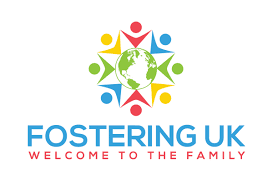Understanding the different types of fostering placements
Each child requires different emotional, behavioral, medical, and educational support. Additionally, a child's time in the system can vary widely, with some children requiring only short-term, immediate care while others require long-term care. Therefore, if you are considering fostering a child, continue reading to learn about how foster parents can provide children with secure, temporary environments to heal, develop, and thrive.
1. This type of care, provided to foster children under 18 and involving stays ranging from a few months to several years, is most familiar to traditional foster care families. Many children in need of traditional foster care have been abused or neglected, and they require assistance until a more long-term care plan can be developed, one in which the children are ideally reunited with their birth parents.
To prevent siblings from being separated, it is common for families to be asked to adopt multiple children. Furthermore, there is a huge joint effort with the temporary parents, with regular home visits and association with those inside the childcare framework.
2. Expanded Child care
This care is intended to help youth ages 18 through 20 and energize autonomy as they progress to adulthood.
They continue to receive support from foster parents or caregivers in a group home and remain in the traditional foster care setting.
The youth would directly receive assistance from the state as they establish a supervised independent living arrangement with more independence and self-control.
In this situation, the young might remain with temporary parents yet can set up a food and lodging or occupant game plan.
Compared to traditional care, foster parents who choose to provide this kind of care offer support and direction with little supervision. The young may likewise have the option to get a loft, live in a school residence, or remain with companions or family members, among different choices.
3. Receiving Care, also known as emergency care, is short-term care lasting up to 30 days for children who require immediate protective custody. Stays until other suitable arrangements can be made, such as with the biological parents, a relative, or a foster family that is prepared to provide support for a longer period. As a result, these foster parents frequently assist in determining whether a child requires a longer-term placement.
Calls can come in at any hour, day or night, so an effective position in this care requires a family who can adjust rapidly and are OK with liquid circumstances.
4. Services for the Behaviorally Rehabilitated (BRS) A higher level of care is required for behaviorally rehabilitative services (BRS).
Many of the foster children admitted to BRS have had particularly difficult upbringings. They exhibit behaviors like property destruction and suicidal or homicidal thoughts as a means of coping.
In addition to receiving additional trauma-informed care training to assist them in managing these high-risk responses to trauma, foster parents also frequently interact with support services.
5. Respite Care is intended to provide the primary foster care family with a brief respite, as the name suggests. On the off chance that temporary parents need to plan an end-of-the-week away or have different obligations that briefly struggle with the youngster's requirements (a booking struggle with a parental visit, for instance), they typically can't enlist simply any sitter — even though special cases are permitted and rely upon the particular situation. Licenses are required for caregivers. As a result, respite care services are available to parents.
It's an approach to giving reliable and proper consideration to a kid while ensuring the non-permanent family has what they need to keep supporting the kid in the long haul.
It is of little use to try to join a foster group that does not exist in your area. To narrow down your list of possible prospects, you must first decide which businesses are nearest to you. Then, apply all of the previously listed considerations. Thankfully, there are offices for The UK Fostering all across the nation, including those in London, the Midlands, East Anglia, and other regions. Browse the locations we serve to find The UK Fostering agency in your area.
We really hope that this blog has helped you narrow down your search for the ideal fostering agency. If you have any questions about The UK Fostering or if we would be the best agency for you, please get in touch with us straight away.




Comments
Post a Comment